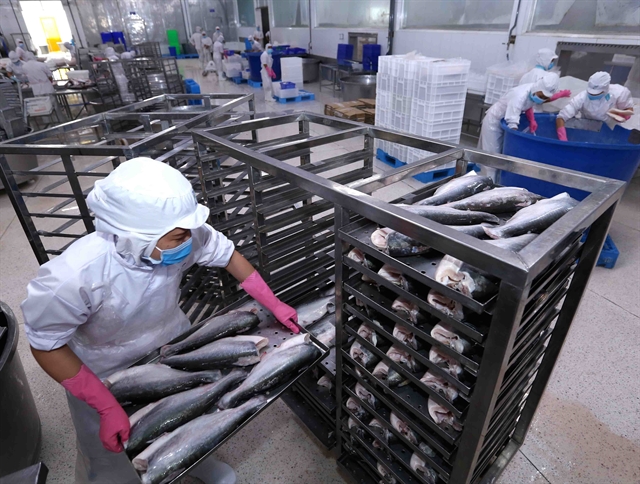According to experts, trade defence is an effective tool, a “relief buoy” to help protect businesses in the context of international integration.

Trade defence measures acted as an effective “relief buoy” that helped protect businesses in the context of international integration, said Le Trieu Dung, director of the Ministry of Industry and Trade’s Trade Defence Department.
Dung said these legal measures were designed to protect domestically produced goods from the sudden increase in imported products that had stemmed from the 13 free trade agreements (FTAs) Viet Nam had signed.
“This is why the most integrated and free economies are also the ones with the most trade defence measures,” he added.
For example, such measures were introduced in the US 100 years ago and had become a mandatory element in the international commercial business environment to protect legal interests in the domestic market from unfair competition of imported goods.
“Viet Nam’s consistent policy during integration and the implementation of FTAs, including new generation FTAs such as the EVFTA and CPTPP, is basically to reduce tariffs on imported goods. This has created competition pressure. Enterprises and associations need to study and use trade defence to protect their interests in the domestic market against unfair competition from imported goods,” he said.
The ministry has been investigating 20 cases, mainly anti-dumping, anti-subsidy and safeguard investigations, typically with fertiliser, wood, steel, aluminum, cane sugar and syrup.
The number of cases remains modest compared to the 200 cases of Vietnamese exports being sued by foreign markets. However, they have contributed to protecting the manufacturing industry, which accounted for about 6 per cent of the country’s GDP in 2019 and nearly 150,000 jobs. Some industries such as steel, aluminum and fertiliser would be at risk without protective tools.
Due to the increase in trade remedies imposed by foreign markets, the MoIT has co-ordinated with relevant ministries and agencies to support businesses by providing up-to-date information, advice on legal issues and details of investigations being carried out by other countries, as well as solutions for businesses.
Viet Nam has seen some positive results. The country has successfully appealed about 43 per cent of cases to ensure products, especially commodities such as basa fish and shrimp, continue to be exported to major markets such as the US and EU with tax rates of zero per cent or very low. It has petitioned five cases to the WTO’s Dispute Settlement Agency, of which it has won three.
However, experts said only a small number of enterprises and business associations understood the laws and policies regarding trade remedies so only a few had been able to effectively employ them.
Nguyen Thi Thu Trang, director of the WTO and Integration Centre under the Viet Nam Chamber of Commerce and Industry (VCCI), said Viet Nam had opened up its domestic market to goods from 51 partner countries, helping to make the Vietnamese market more vibrant and competitive.
However, mass imports that caused unhealthy competition has also been seen, capable of causing significant damage and threatening the long-term interests of some manufacturing industries.
This was why businesses needed to put forward their ideas for the latest draft project to improve their trade defence capabilities. — VNS





